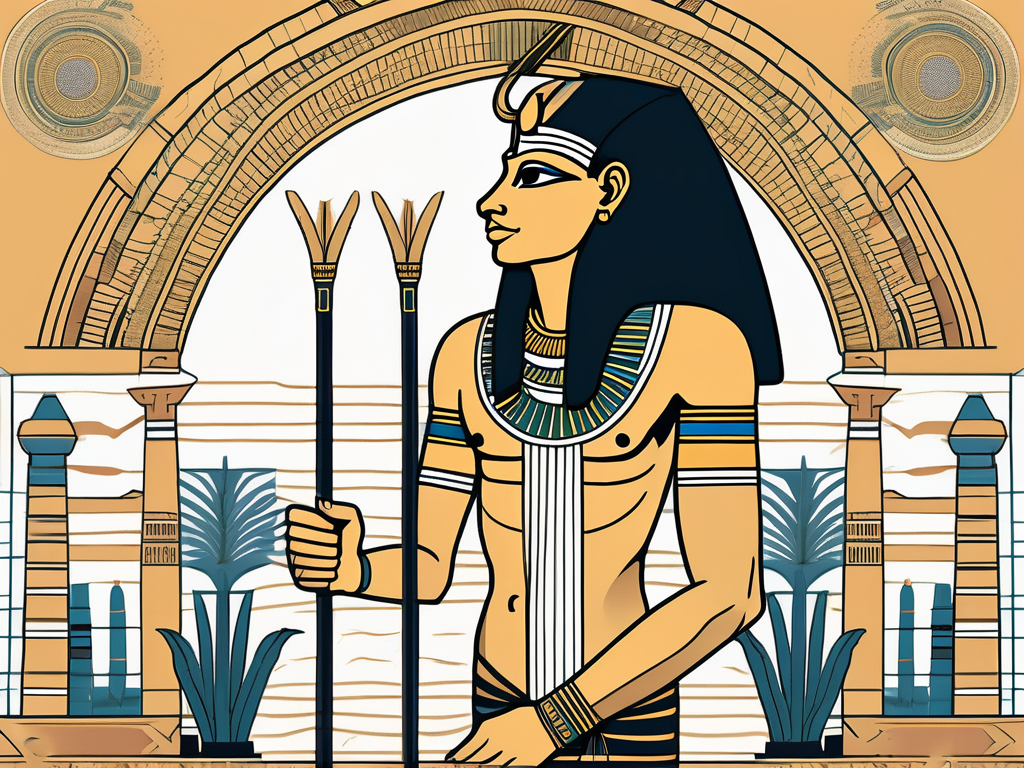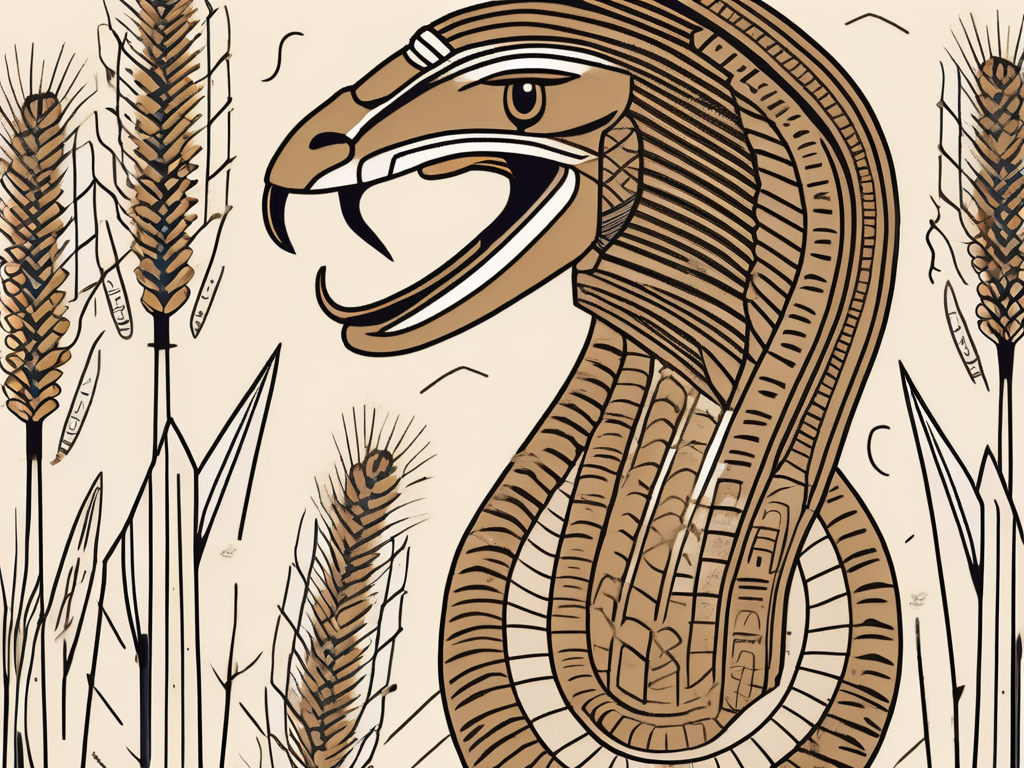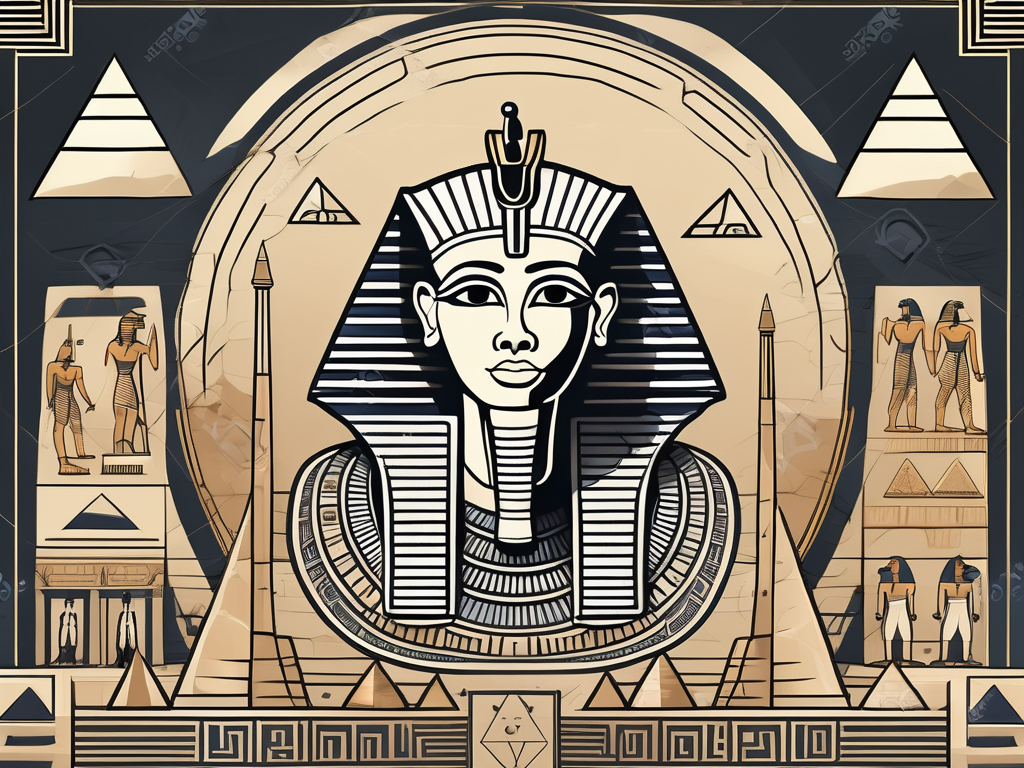Welcome to the fascinating world of ancient Egypt, where gods and goddesses reigned supreme. Among them, there is a deity who stood out for his association with fertility, the very essence of life itself. This article aims to delve into the mysteries surrounding the Egyptian God of Fertility, shedding light on his significance, mythology, influence, and legacy.
Understanding the Concept of Fertility in Ancient Egypt
In ancient Egyptian society, fertility held great importance. It was believed that the growth of crops, the birth of children, and the abundance of life depend on the favor of the gods. Fertility symbolized the renewal of life and the continuation of the Egyptian civilization.
The concept of fertility extended beyond the physical realm. It encompassed not only human procreation but also the fertility of the land, animals, and even ideas. This holistic understanding of fertility permeated every aspect of ancient Egyptian culture.
The Cultural Significance of Fertility
Fertility was deeply ingrained in the culture of ancient Egypt. The prosperity of the nation relied on the bountiful harvest, which would ensure the well-being of its citizens. Consequently, the god associated with fertility held a position of great importance within the pantheon.
The Egyptians believed that the fertility of the land was directly influenced by divine forces. They revered the god of fertility, attributing to him the power to control the cycles of nature and ensure the abundant growth of crops.
Furthermore, the concept of fertility extended beyond agriculture. It was believed that the fertility of animals played a crucial role in the overall prosperity of the nation. The Egyptians closely observed the breeding patterns of their livestock, ensuring that the animals were healthy and able to reproduce. This attention to animal fertility was seen as a way to ensure the abundance of resources and the well-being of the community.
In addition to the physical aspects, the Egyptians also recognized the importance of intellectual fertility. They believed that the birth of new ideas and knowledge was vital for the progress of their civilization. Scholars and scribes were highly respected in ancient Egypt, as they were seen as the bearers of intellectual fertility. Their ability to document and preserve knowledge ensured the continued growth and development of the society.
The Role of Religion in Fertility
Religion played a pivotal role in fertility rituals and practices in ancient Egypt. The people believed that by worshiping the god of fertility, they could gain his favor and, in turn, secure a prosperous and fertile existence.
Temples dedicated to this deity were erected throughout the land, serving as sacred spaces where offerings and prayers were made. The rituals performed within these sanctuaries aimed to please the god and ensure his blessing upon the people.
One of the most important fertility rituals in ancient Egypt was the annual flooding of the Nile River. This natural phenomenon was seen as a divine act of fertility, as the floodwaters brought rich silt that fertilized the land, making it fertile for agriculture. The Egyptians celebrated this event with great joy and gratitude, recognizing it as a direct manifestation of the god’s favor.
Furthermore, fertility festivals were held throughout the year to honor the god and seek his blessings. These festivals were vibrant and lively, filled with music, dance, and feasting. The people believed that by participating in these festivities, they could invoke the god’s fertility powers and ensure a prosperous future.
It is important to note that fertility was not solely associated with the physical act of procreation. The Egyptians believed that fertility extended to all aspects of life, including creativity, abundance, and growth. This comprehensive understanding of fertility shaped their worldview and influenced their daily lives.
The Divine Patron of Fecundity: An Introduction
Now let us turn our attention to the god himself, the divine patron of fecundity. His mythology provides insights into his origin, symbols, and attributes, offering a glimpse into the ancient Egyptian’s perception of fertility.
In the realm of ancient Egyptian mythology, the god of fertility held a prominent position. He was revered as the bringer of life and abundance, a deity whose influence extended far beyond the boundaries of human existence. The Egyptians believed that his power was instrumental in ensuring the fertility of their land, particularly through the annual flooding of the Nile.
The Mythology Surrounding the God of Fertility
The mythology surrounding the god of fertility is rich and complex, revealing intriguing details about his divine nature. According to ancient Egyptian belief, he was born from the union of two primary deities, illustrating his close association with creation and fertility. This divine birth was celebrated as a pivotal moment that heralded the renewal of life, a cyclical process that mirrored the agricultural cycles of the land.
Legend has it that the god of fertility emerged from the primordial waters, a testament to his connection with the life-giving forces of nature. As the waters receded, leaving behind fertile soil, the Egyptians saw this as a direct manifestation of the god’s power and benevolence. They believed that his presence ensured the prosperity of their crops and the abundance of their livestock.
Furthermore, the god of fertility was often depicted in ancient Egyptian art as a youthful figure, symbolizing the perpetual cycle of life and rebirth. His youthful appearance served as a reminder of the eternal nature of fertility, a force that transcended the boundaries of time and space.
The Symbolism Attached to the God of Fertility
Symbolism was deeply woven into the ancient Egyptian culture, and the god of fertility was no exception. His depictions in art and sculpture were laden with symbolic meaning, offering a visual language through which the Egyptians could understand and connect with his divine essence.
One of the most prominent symbols associated with the god of fertility was the scepter, which he often held in his hand. This scepter represented his authority over life and fertility, a symbol of his power to bestow blessings upon the land and its inhabitants. It served as a visual reminder of the god’s role in the cyclical nature of existence, ensuring the continuity of life and the perpetuation of the Egyptian civilization.
In addition to the scepter, the god of fertility was frequently depicted holding an ankh, an ancient Egyptian symbol of life. This symbol, shaped like a cross with a loop at the top, represented the eternal nature of life and the divine power of creation. By holding the ankh, the god of fertility reinforced his role as the source of life and abundance, a deity whose influence extended to all living beings.
Another significant symbol associated with the god of fertility was his iconic headdress, shaped like a tall plume. This distinctive headdress signified abundance and growth, reflecting the god’s role in ensuring the fertility of the land. It served as a visual cue, reminding the Egyptians of the god’s presence and his ability to bring forth bountiful harvests and flourishing livestock.
Furthermore, the god’s association with animals, particularly bulls and rams, reflected his connection with the natural world and the idea of procreation. Bulls, with their strength and virility, symbolized the god’s power to ensure the fertility of the land and the successful breeding of livestock. Rams, known for their reproductive prowess, were seen as a manifestation of the god’s ability to bring forth new life and ensure the continuation of the species.
In conclusion, the god of fertility played a vital role in the ancient Egyptian belief system. His mythology, filled with rich symbolism and captivating narratives, provided the Egyptians with a framework through which they could understand and connect with the forces of fertility and creation. As the divine patron of fecundity, he embodied the cyclical nature of life, ensuring the prosperity and abundance of the land and its people.
The Influence of the Fertility God on Ancient Egyptian Society
The god of fertility wielded significant influence over ancient Egyptian society. His presence not only permeated religious practices but also left an indelible mark on art, literature, rituals, and ceremonies.
The Fertility God in Art and Literature
Throughout history, artists and writers have been inspired by the god of fertility, capturing his essence in various forms. In the art of ancient Egypt, he was often portrayed alongside other deities, emphasizing his role in the cosmological order.
Literature also played a vital role in preserving the legacy of the god. Stories and poems passed down through generations immortalized the divine patron of fertility, ensuring his importance endured long after the ancient civilization’s time.
The Fertility God in Rituals and Ceremonies
Rituals and ceremonies formed an integral part of ancient Egyptian society, and the god of fertility played a prominent role in these sacred practices. From agricultural festivals to fertility rites, the people sought to secure his favor and ensure the continuity of life.
Ceremonies often involved music, dance, and offerings, creating a vibrant celebration of the god’s benevolence. These rituals served as a unifying force, bringing the community together and reinforcing their spiritual connection with the deity of fertility.
The Legacy of the Egyptian God of Fertility
The influence of the Egyptian god of fertility transcends ancient times, continuing to captivate modern imagination. Even in contemporary Egyptian culture, traces of the god’s legacy can be found, merging tradition and mythology in unique ways.
Modern Interpretations and Representations
The god of fertility continues to inspire artists and storytellers today. Modern interpretations of the deity often blend elements of ancient mythologies with contemporary themes, creating a bridge between past and present.
Furthermore, his symbols and attributes still resonate with the Egyptian people, serving as reminders of their rich cultural heritage and connection to the land.
The Fertility God in Contemporary Egyptian Culture
While ancient rituals and ceremonies may have evolved or been replaced, the concept of fertility remains deeply ingrained in the fabric of contemporary Egyptian culture. The importance of family, the celebration of life, and the reverence for the land are all echoes of the deity’s enduring influence.
In conclusion, the Egyptian god of fertility holds a significant place in the pantheon of ancient Egyptian deities and in the hearts of the people. His role as the divine patron of fecundity encompassed not only physical fertility but also the fertility of creation, ideas, and prosperity. Today, we unveil the mysteries surrounding this divine figure, shedding light on his cultural significance, mythology, influence, and lasting legacy.












